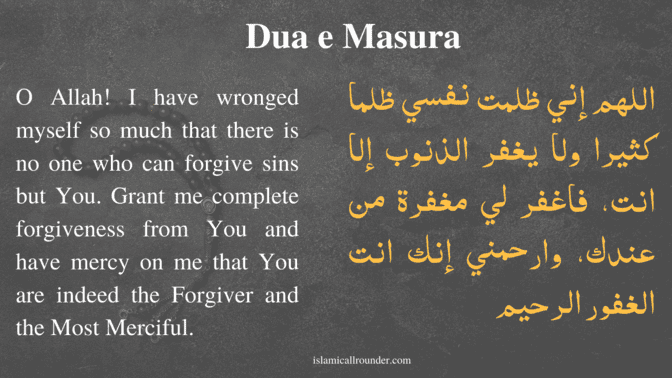The dua “Allahumma Inni Zalamtu Nafsi” (O Allah, I have wronged myself) is a powerful and humble invocation that Muslims have used for centuries to seek forgiveness, experience inner peace, and grow spiritually. In this article, we will explore the meaning and significance of this dua and provide practical tips for incorporating it into your daily spiritual practice.
The Meaning and Significance of “Allahumma Inni Zalamtu Nafsi”
The dua “Allahumma Inni Zalamtu Nafsi” is a heartfelt plea to Allah, the Most Merciful, to forgive our sins and transgressions. This dua is often recited during contemplation, repentance, and self-reflection and is a powerful reminder of the importance of seeking Allah’s forgiveness and striving to lead a righteous life.
In Islamic tradition, seeking forgiveness is fundamental to spiritual growth and development. Acknowledging our mistakes and shortcomings and turning to Allah with a humble and contrite heart can help us experience inner peace, spiritual growth, and a deeper connection with the Divine.
Istigfar is an act by which the ummah will be protected from torment. We are suffering from various torments today because we do not sincerely ask forgiveness from Allah Almighty.
We would not have been in such a predicament if we had sincerely asked for forgiveness after our sins.
If you are also looking for a prayer that will be read and you ask forgiveness from Allah, then we will tell you about such a prayer. Which is one of the best players to ask for forgiveness, Allahumma inni salami nafsi? This is the supplication dua masura that Hazrat Muhammad (PBUH) narrated.
Hazrat Abo Bakar Siddiq asked Hazrat Muhammad (PBUH) to teach me a Dua, which I recite in Salat. Prophet said: Recite this supplication.
Allahumma inni zalamtu nafsi Dua in English

No matter how sinful man may be, he should never despair; what is the status of our sins in the face of Allah’s vast mercy, provided that man also repents his sins? Hazrat Muhammad (PBUH) said:
Indeed, Shaitan said: ” O my Lord! I swear by your honour that I will stop your servants from coming to you as long as they live in this world.”
Allah said: I swear by my honour and my highness. I will keep listening to their prayers as long as they ask for forgiveness for their sins.
Practical Tips for Incorporating “Allahumma Inni Zalamtu Nafsi” into Your Daily Spiritual Practice
- Make it a regular part of your daily routine. The dua “Allahumma Inni Zalamtu Nafsi” can be recited anytime during the day. Still, it is mighty when recited during the last third of the night, when the gates of heaven are open, and the supplications of the believers are more likely to be answered.
- Reflect on the meaning of the dua. Take a few moments to ponder the significance of the words “Allahumma Inni Zalamtu Nafsi.” Consider how you have wronged yourself and the steps you can take to rectify your mistakes and avoid repeating them in the future.
- Combine the dua with other spiritual practices. The dua “Allahumma Inni Zalamtu Nafsi” can be recited in conjunction with other spiritual practices, such as dhikr (remembrance of Allah), tafakkur (reflection), and tawbah (repentance). Combining these practices can deepen your spiritual connection and attract even more blessings.
- Share the dua with others. The dua “Allahumma Inni Zalamtu Nafsi” is a powerful and beautiful invocation that can be shared with friends, family, and loved ones. By sharing this dua with others, you can inspire them to seek Allah’s forgiveness and to experience the blessings of inner peace and spiritual growth.
The Blessing of Asking for Forgiveness
Hazrat Muhammad (PBUH) said: When the two guardian angels (i.e., the scribes of deeds) present themselves before Allah (someone’s book of deeds) and at the beginning and end of which is written stiffer.
Allah says I Forgive everything between the beginning and the end of this book of deeds. Therefore, it is known that a person’s happiness lies in the fact that he sincerely seeks forgiveness for his past sins and returns to Allah.
One should not despair about how Allah Almighty gives satisfaction and consolation to His servants.
Types of Repentance
There are some types of repentance: Apparent repentance & Esoteric repentance
- Apparent repentance is when a person turns his attention away from evils, focuses on obedience to Allah, and keeps attracting himself towards good deeds.
- Also, repent from the actions contrary to the Shariah and act by the Shariah commands.
- The meaning of esoteric repentance is that one should purify one’s heart from the filth of sins and perform righteous deeds by the Shari’ah.
- When man’s outward appearance conforms to the command of Allah, the heart and the heart become obedient to Allah and change from evil to good.
- It is only the work of angels that they stay away from sins all the time. Always immersed in sin is a characteristic of Satan.
- On the other hand, repenting of sins, leaving the path of disobedience and stepping on the path of guidance are the characteristics of the children of Adam (peace be upon him). Satan is man’s open enemy.
The Story of Imam Hanifa
An elder narrates that I came to spend the night in the Jama Masjid of Kufa to see the night awakening of Imam Abu Hanifa (as). They say: By Allah! I saw with my own eyes that Imam Abu Hanifa (as) went home after the Isha prayer. He changed his scholarly dress and came to appear before Allah wearing slave clothes.
And they stood in the corner of the mosque, pulling their beards all night and begging. Abu Hanifa is your culprit. Forgive him; it is also narrated about Hazrat Imam Azam (as) that he would cry and faint; when he regains consciousness, he asks! It would be a great surprise if Abu Hanifa were forgiven on the Day of Qayamat.
Imam Abdullah bin Mubarak
Similarly, Hazrat Imam Abdullah bin Mubarak (as) had a white beard. They would seize him, weep before Allah, and say, “O Allah! We have to bless Abdullah bin Mubarak when he is old.
Hazrat Rabia Basri
A man said to Hazrat Rabia Basri: I have committed many sins. Now, if I repent, will Allah forgive me? She said: The real issue is not so; the fact is that (first) God will forgive you, then you will repent.
Hazrat Ibrahim Al-Atroosh
Hazrat Ibrahim Al-Atroosh (may Allah have mercy on him) said: We were sitting in Baghdad with Hazrat Maroof Karkhi (may Allah have mercy on him) on the river Tigris—a group of teenagers in a boat passed by playing drums, drinking alcohol and playing.
We told Hazrat Maroof Karkhi (may Allah have mercy on him) that you see them; these people disobey God.
Hazrat Maroof Karkhi
Curse them. Hearing this, Hazrat Maroof Karkhi (may Allah have mercy on him) raised his hand and said: O God! Just as you have made them happy in this world, keep them happy in the hereafter.
People said: We told you to curse (and you prayed for them)? He said: When Allaah will make them happy in the Hereafter, He will accept their repentance.
Hazrat Mutarif bin Abdullah
Hazrat Mutarif bin Abdullah (supplicating to Allah): O Allah! Be pleased with us; if you disagree, forgive because the master forgives his slave, even if he is not pleased.
Frequently Asked Questions
What is the meaning of “Allahumma Inni Zalamtu Nafsi”?
The dua “Allahumma Inni Zalamtu Nafsi” is a plea to Allah to forgive our sins and transgressions.
How can I incorporate this dua into my daily spiritual practice?
You can make the dua “Allahumma Inni Zalamtu Nafsi” a regular part of your daily routine, reflect on its meaning, combine it with other spiritual practices, and share it with others.
Why is seeking forgiveness important in Islamic tradition?
Seeking forgiveness is fundamental to spiritual growth and development in Islamic tradition. By acknowledging our mistakes and shortcomings and turning to Allah with a humble and contrite heart, we can experience inner peace, spiritual growth, and a deeper connection with the Divine.
Can the dua “Allahumma Inni Zalamtu Nafsi” be recited any time during the day?
Yes, the dua “Allahumma Inni Zalamtu Nafsi” can be recited any time during the day, but it is mighty when recited during the last third of the night.
How can I experience inner peace and spiritual growth through the “Allahumma Inni Zalamtu Nafsi” dua?
By acknowledging your mistakes and shortcomings and by turning to Allah with a humble and contrite heart, you can experience inner peace and spirituality.
